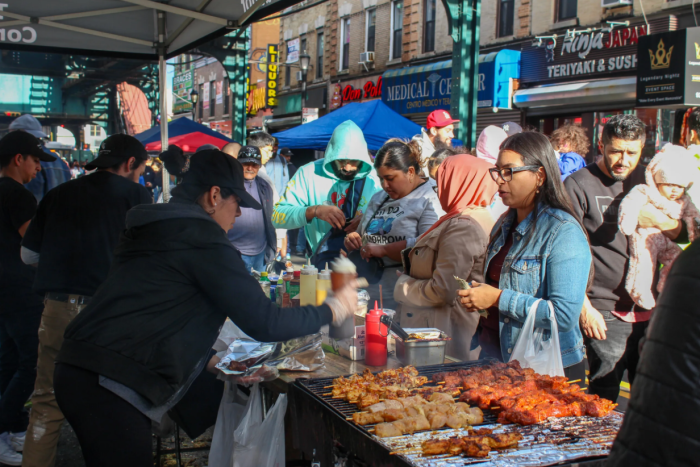A Hindu temple in Richmond Hill has been battling with the Department of Buildings (DOB), after the mandir was hit with several violations that both the building owner and priest say were incorrect and unfair.
The DOB began to issue violations in January for working without permits on electricity and plumbing, said Ali Mahmood, who owns the building on 101st Avenue. He went on to say that the DOB claimed the Certificate of Occupancy (C of O) for the structure was not listed as commercial.
Mahmood took the agency to court and argued that since the structure was erected before 1938, it did not require a C of O. The entire block, he said, was actually mixed-use and he had been paying commercial taxes on the building for years.
The next court hearing will be on Tuesday, August 21, and Mahmood said he will now have a lawyer with him.
Mahmood, who said he is Muslim, has not taken rent payments from the mandir, as they have not been able to raise money.
The building battle comes as some Richmond Hill residents and business owners protest the zoning laws that were approved late last month.
All projects, a DOB spokesperson said, are affected by new zoning laws, however.
“When it comes to rezoning,” the spokesperson said, “all buildings are impacted if a proposed conversion, enlargement or development is planned.”
Mahin Gosine, the mandir’s priest and a sociology professor, said the larger problem was the city’s attitude toward the Indian community. Right now, he said, the city was enforcing its power on the community to the point where residents feel it is discrimination.
“This is a form of behavior that’s meted out toward the whole Indian community,” Gosine said.
Gosine said the community was open to having a discussion with the city to find out what structures had been built wrong, or what needed to be done to correct things.
“We are willing to sit and talk,” he said, “but the city has to be forthcoming.”
Mahmood also said shutting down the mandir affected the area’s culture, as many residents spend their little time off at their houses of worship.
“The only few hours these people have is used to come to the church to meditate,” Mahmood said. “People [are] trying to preserve their culture.”
































